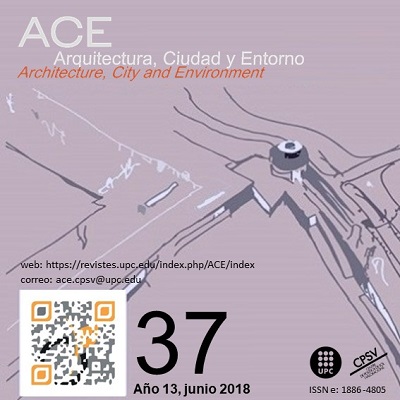City for creatives: what attracts and repeats the Greater Concepcion Area, Chile. Distances between global and local discourses
DOI:
https://doi.org/10.5821/ace.13.37.5276Keywords:
Creative class, attractive urban amenities, local rootingAbstract
Objectives
In the context of a discussion, still ongoing, about the concept of creative city, this article contrasts global discourses with local appreciations of people considered the creative class, identifying urban characteristics that attract and establishes roots, and others that produce disaffection and discomfort.
Methodology
The case study was conducted in the Metropolitan Area of Concepción (AMC), Chile, conducting interviews with people considered the creative class; the interviewees were selected using snowball sampling, and the sample universe was bounded under the logic of saturation. Finally, the information obtained was systematized with the Content Analysis software, T-Lab.8.1.
Conclusions
The results were contrasted with a state of the art developments and global academic discursive, evidencing consensus, dissents and hierarchies and revealing the necessary and local adjustment of urban planning and design; in pursuit of a policy of urban competitiveness based on the attraction and retention of creative talents, especially within intermediate urban systems.
Originality
Studying the attraction-retention capacity of intermediate cities for creative groups -with a focus on people and their experiences- is unusual, although it is essential in a scenario of global competition to attract talent and advance human capital.
Downloads
Published
Issue
Section
License
| INTELECTUAL PROTECTION CRITERIA |
At this moment, it is count with the "Oficina Española de Patentes y Marcas", while global protection it is being processed by the World Intelectual Property Organization (OMPI/WIPO). Nevertheless the International Standard Serial Number Office (ISSN) has given the following numbers ISSN: 1886-4805 (electronic version) and 1887-7052 (paper version). All articles will be peer reviewed, using double blind reviewing. |
| COPYRIGHT |
The article contents and their comments are authors exclusive liability, and do not reflect necessarily the journal editor commitee's opinion. All ACE published works are subject to the following licence CC BY-NC-ND 3.0 ES http://creativecommons.org/licenses/by-nc-nd/3.0/es/ It implies that authors do not hold nor retain the copyright without restrictions but only those included in the licence. |


































